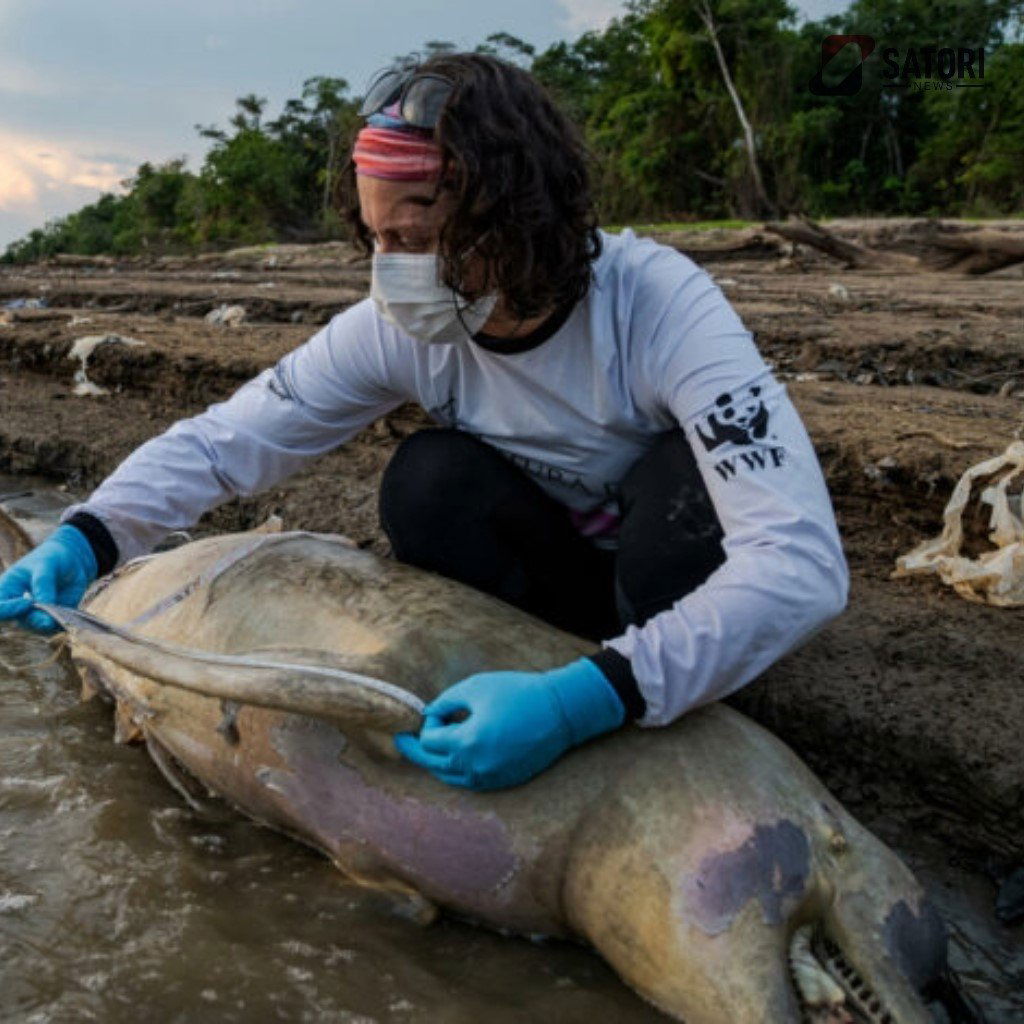Picture: for illustration purposes
Environmental Crisis in Brazil Underscores Climate Change: Over 120 Amazon Dolphins Dead From Drought and Heat
It seems that the catastrophic effects of climate change have taken an unnerving toll on Brazil's aquatic ecosystem. In a tragic occurrence, the carcasses of 120 river dolphins, a blend of unique pink and grey species, have been found within a tributary of the Amazon River. Researchers point conclusively at severe drought and high temperatures as the primary causes for this mass fatality among the few remaining freshwater dolphins across the globe.
The Mamiraua Institute, a dedicated science research body operating under Brazil's Ministry of Science, Technology and Innovation, recently acknowledged the discovery of two more dead dolphins in the region around Tefe Lake. According to the institute, the area has experienced an extreme heatwave in the last week with temperatures soaring above 39C (102F). It is believed that the high temperatures led to this significant dolphin mortality as well as the death of thousands of fish, as reported by local media.
The pink river dolphins, also called "boto" in Brazil, are a distinctive freshwater species confined exclusively to South American rivers. Their slow reproductive cycles render them particularly susceptible to threats. It has been observed that around eight out of ten of the deceased specimens are pink dolphins. These figures roughly translate to 10 percent of the estimated population in Lake Tefe, raising concerns over the potential threat to species survival in this region.
In light of this crisis, Brazil's Chico Mendes Institute for Biodiversity Conservation has dispatched a team of veterinarians and aquatic mammal experts in an effort to save any remaining dolphins in the lake. While scientists have not ruled out potential bacterial infections as a cause of death, the timing of the deaths, linked with extreme heat, does point towards heat and drought as primary culprits.
Simultaneously, the environmental catastrophe has also impacted riverside communities, according to Ayan Fleischmann, the geospatial coordinator at the Mamiraua Institute. Lack of access to quality water and declining river levels have curtailed the means of transportation for many communities. Tefe Mayor Nicson Marreira rued his administration's inability to deliver food supplies directly to some communities besieged by dried-up rivers.










